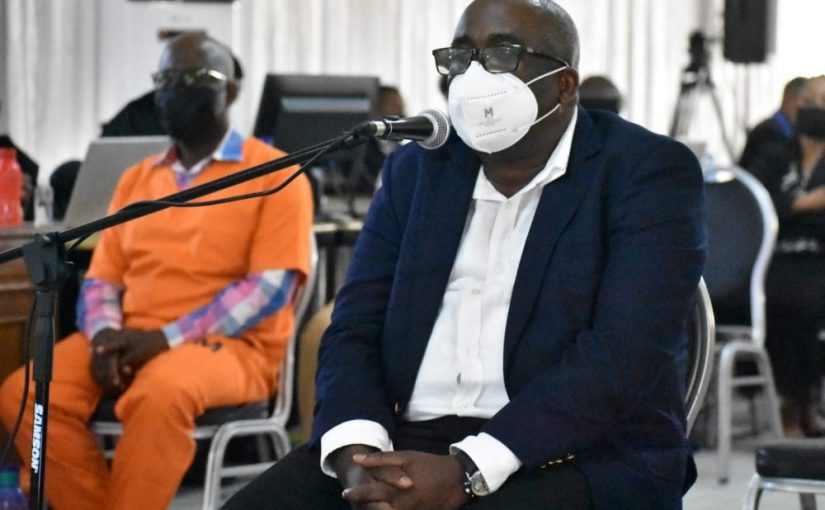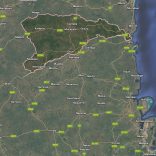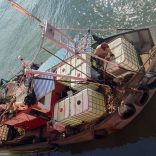Mozambique: Five killed by terrorists in Melija, Chiúre district - AIM
Hidden debts: Privinvest “was not a normal supplier” – AIM report

Photo: Noticias
A senior official in the Mozambican security service. SISE, on Monday blamed the Abu Dhabi-based group Privinvest for some of the problems that doomed the companies Proindicus, Ematum (Mozambique Tuna Company) and MAM (Mozambique Asset Management) to failure.
Giving evidence to the Maputo City Court, on the 41st day of the trial of 19 people in connection with crimes linked to the three companies, and their illicit loans of over two billion dollars granted by the banks Credit Suisse and VTB of Russia, the former technical director of SISE, Agi Anlaue, said Privinvest “was not a normal supplier”.
Anlaue was in a good position to know, since he held management positions in quick succession in all three companies. At Proindicus, he ran the Command and Control Centre based at the company’s headquarters. That Centre was supposed to centralise, process and analyse data received from the vigilance systems along the Mozambican coast.
But that depended on the radar systems that Privinvest was supposed to supply under its contract with Proindicus. All the required radars were not in position,
“The supplier (i.e. Privinvest) delayed a lot”, said Anlaue, and the Privinvest representative at Proindicus, a German whom Anlaue named only as Peter, rejected complaints from the Mozambicans about delays.
“Privinvest wasn’t a normal supplier”, he said. “In a normal company, when a client complains, the company listens. But Privinvest was a company that had a capacity to influence decision making at the highest level. Collaboration was difficult. You weren’t supposed to complain – they didn’t react positively”.
At one point, said Anlaue, Peter “presented himself as director of the project. I protested – he couldn’t be both supplier and director. He got angry with me”.
Asked what he meant by “the highest level”, Anlaue said that in company terms, the highest body was the Board of Directors, chaired by Antonio Carlos do Rosario, the former head of economic intelligence at SISE, and now one of the main accused in the current case.
Anlaue said he had considered Rosario a friend – but he accused Rosario of spreading the rumour that he, Anlaue, had ordered his arrest. “It wasn’t me”, protested Anlaue. “I have neither the motive nor the means to do that”.
He thought that Proindicus could have been viable, if it had stuck to the original, fairly modest scheme (costing 372 million dollars). But the loan taken from the bank Credit Suisse ballooned to 622 million dollars, and the equipment did not all arrive on time.
As for Ematum where he was a director, Anlaue said there was “a sequence of errors”, which had not been foreseen in the viability study, and which greatly increased costs.
One was the availability of bait. The longliner fishing boats sold to Ematum by Privinvest trail fishing lines behind them that can be kilometres long, laden with hooks each of which should carry a chunk of squid as bait to attract the tuna. Privinvest also supplied the trawlers to catch the squid in Mozambican waters.
But the Mozambican squid was not of the appropriate quality for catching tuna. And so the bait had to be imported. Mozambique did not have skilled tuna fisherman, so many of the crews on the Ematum boats were also imported, from Indonesia, among other countries.
The Ematum management had believed that the boats would spend most of their time fishing on the high seas. But the Mozambican fisheries inspection service declared the Privinvest vessels as unfit for fishing tuna. So they had to be adjusted in port, which took time and money. Every day the boats were at anchor in the Maputo fishing port, Ematum had to pay moorage fees. None of these costs had been envisaged.
Nonetheless some of the Ematum boats did put out to sea on a few occasions, and Anlaue insisted that some of the tuna caught was exported to Spain and China, through he could not point to documentation proving this.
As for MAM, Anlaue said the viability study “was badly done”. The company’s main tasks were to build a new shipyard in the northern port of Pemba, and to upgrade the Mozambican naval bases in Beira and Maputo. None of this happened.
It turned out that the entire area of Pemba port, where MAM should have installed its shipyard, had already been leased out in 2013 to PCB (Ports of Cabo Delgado). This was set up by the National Hydrocarbon Company (ENH) and the Ports and Railway Company (CFM) in order to provide logistical facilities for offshore natural gas operations in the Rovuma Basin.
So MAM pushed ahead with obtaining a 535 million dollar loan from the Russian bank VTB, even though the area where it expected to install a shipyard was already occupied. Anlaue added that other basic questions had not been answered – such as how many engineers MAM would need.
Asked whether he agreed with Rosario’s claim that the Mozambican government had “sabotaged” the three companies, Anlaue replied “the main problems all had to do with the supplier, and not with any Mozambican body”.












Leave a Reply
Be the First to Comment!
You must be logged in to post a comment.
You must be logged in to post a comment.